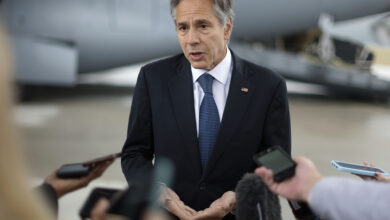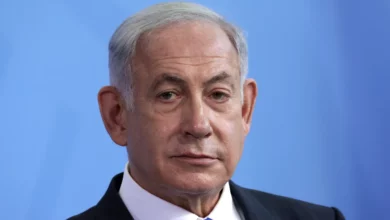International sanctions could trigger a popular uprising in Iran like last year's revolt in Egypt that toppled President Hosni Mubarak, Israel's foreign minister said in an interview published Sunday.
"The opposition demonstrations that took place in Iran in June 2009 will come back in even greater force," Foreign Minister Avigdor Lieberman said in Israel's Haaretz newspaper.
"In my view, there's going to be an Iranian-style Tahrir revolution," he said, referring to last year's mass protests in Cairo's Tahrir Square that forced Mubarak to quit.
"The young generation is sick of being held hostage and sacrificing their future," Lieberman said.
"The situation in Iran, and the feelings of the man on the street, is one of economic catastrophe," he said.
"Just this week there was another devaluation of the Iranian rial …. There's a shortage of basic goods, a rise in crime, and people are trying to flee the country, sending money abroad."
Haaretz said the interview took place on Saturday in New York, where Lieberman attended the United Nations General Assembly along with Prime Minister Benjamin Netanyahu.
At the assembly, Netanyahu delivered a warning about the threat of a nuclear-armed Iran, with the help of a sketch of a comic-book bomb complete with fizzing fuse and a line drawn in red marker showing the state in the device's development which he said Iran must not be allowed to pass.
"You can laugh, but everyone is talking about… the red line," Lieberman told Haaretz.
The Iranian government says it is enriching uranium to 20 percent purity — a short technical step from the 90 percent needed for a bomb — for a medical research reactor. The West believes the effort hides a military goal.
Netanyahu has publicly aired his differences with President Barack Obama's administration over Iran's nuclear ambitions, criticizing Washington for failing to set its own "red lines" that would trigger military action against Tehran.
Israeli media on Sunday said that his UN speech had taken a more conciliatory tone and helped ease tensions with the White House.
"The conflict between Israel and the United States is apparently behind us now," wrote Yisrael Hayom, who is considered close to Netanyahu.
A senior Israeli official told reporters on Sunday's flight back to Israel that Netanyahu's New York trip had two main objectives: "To put the Iranian issue at the top of the international agenda, and to tighten relations with the US."
"We succeeded in both," he said, speaking on condition of anonymity.
He said that Netanyahu held a "very good" telephone conversation with Obama on Friday that lasted about a half hour.




